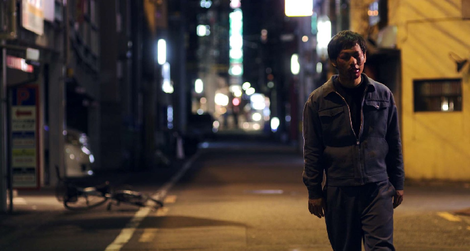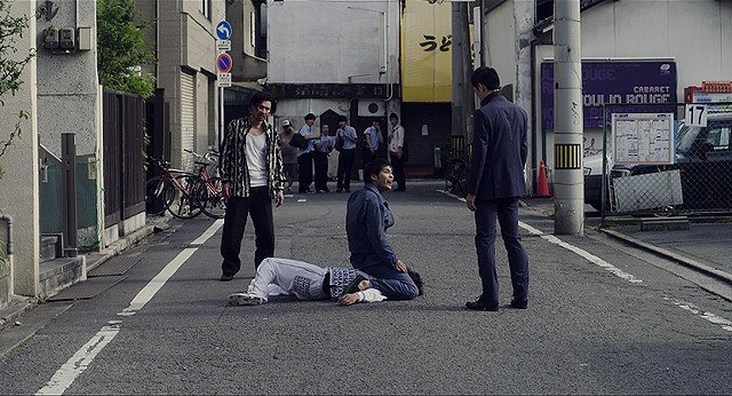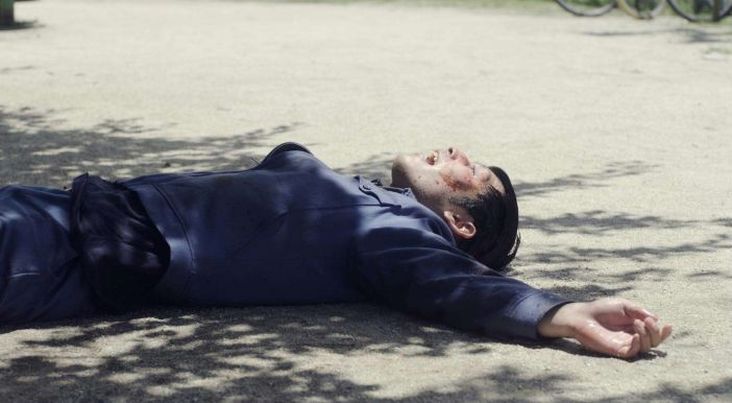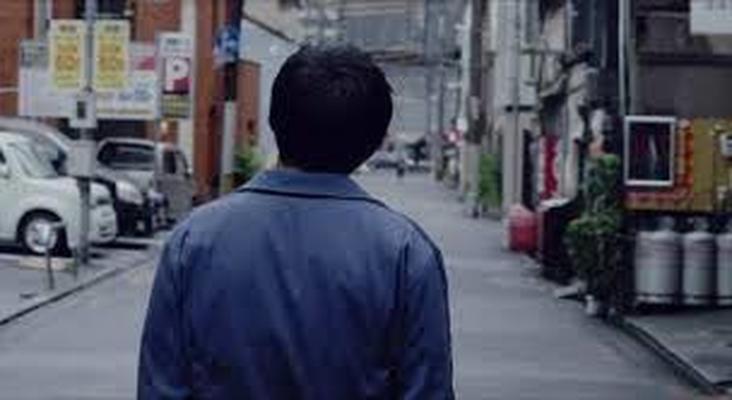 Tetsuya Mariko's Destruction Babies is a brutal deconstruction of masculinity, violence, and culture, a beguiling film that doesn't provide any concrete assertions, opting instead to simply present brutality in its most raw, stripped down form, forcing the viewer to experience violence through the perspective of a man who is more akin to a rabid animal than any form of human-being with a moral compass. Destruction Babies' plot is slight, introducing us to a character in Taira who picks fights with nearly anyone he comes across, with the film providing absolutely no explanation to why he has such a penchant for violence. The most logical explanation seems to be that Taira thinks it's merely entertaining and enjoyable, brutally attacking individuals purely for the sense of pleasure, with his blood-covered knuckles or battered face from past fights being the only clue or warning to others of his coming aggression. Eventually teaming up with Kitahara, the two go on a rampage through the streets of Japan, with Kitahara being more the opportunist, raising his profile through social media, becoming obsessed with the power this brutality gives him over others, fueled by Taira's strength. Destruction Babies examines the seductive qualities of violence and brutality through Kitahara's opportunism, displaying a timid boy in the beginning who becomes flamboyant and bullish, using social media to announce his dominance to the world. Power is a central theme of Destruction Babies, as the film deconstructs the entangled relationship the human psyche has for it through the character of Kitahara, whose newfound "friendship" with Taira empowers him and gives him a sense of control over the world around him. Running parallel to Taira's brutal storyline is the story of his younger brother, Shota, a character who seems to be a bit of an outsider himself, whose felt a bit lost since his brother simply vanished from his life. Shota is the character who provides some semblance of context to Taira's rampage, a boy himself who seems neglected and detached from his upbringing in a small fishing town with a father who seemingly neglects him, and pays little mind to his son's struggles. Destruction Babies doesn't attempt to define Shota's longing or give any concret explanation for Taira's violence, but it hints at a strangled relationship between father and sons, displaying their father as a neglecting father, providing a hint of insight into how Taira himself may have become such a violent vagabond. In one scene of the film, the father explains to the police that "the troublemakers must leave the town", a seemingly throwaway bit of dialogue which provides context to Destruction Babies observational study of Japanese culture, one which praises toughness and masculinity but could also lead to neglect. Their father has very little screen time throughout the film's running time, regulated to the background, an after thought to the film's narrative drive and characterizations. His absence as a way to visually express the neglect felt by his sons, as well as comment on the larger issues in Japanese society, showcasing how toughness and pressured accountability can also breed detachment and a general lack of empathy. Destruction Babies also seems to be a commentary on the digital age in one way or another, showcasing the detachment both the 24 hour news cycle and social media can create on society, and how it can empower the perpetrators or wrongdoers through their raised status. When the news media and social media pick up the story about Kitahara and Taira's rampage, they become celebrities of sort, not character's who are praised by society by any means, but ones that see their social status elevated, granting the character of Kitahara a form of entitlement, power and control. While Destructive Babies doesn't present modern day Japanese youth in the positive light, the film wisely examines how this is just as much a problem of the older generations, recognizing that societies' problems, even if new, are always shared by those of all generations. Nothing is clearly defined throughout this beguiling and difficult experience, and much is up to interpretation in this brutal film, but what Tetsuya Mariko's Destruction Babies has clearly managed is an observational and confrontational study of violence and masculinity-fueled aggression that forces the viewer to experience an up-close and personal account of brutality in its most raw and unfiltered form.
0 Comments
Leave a Reply. |
AuthorLove of all things cinema brought me here. Archives
June 2023
|



 RSS Feed
RSS Feed
